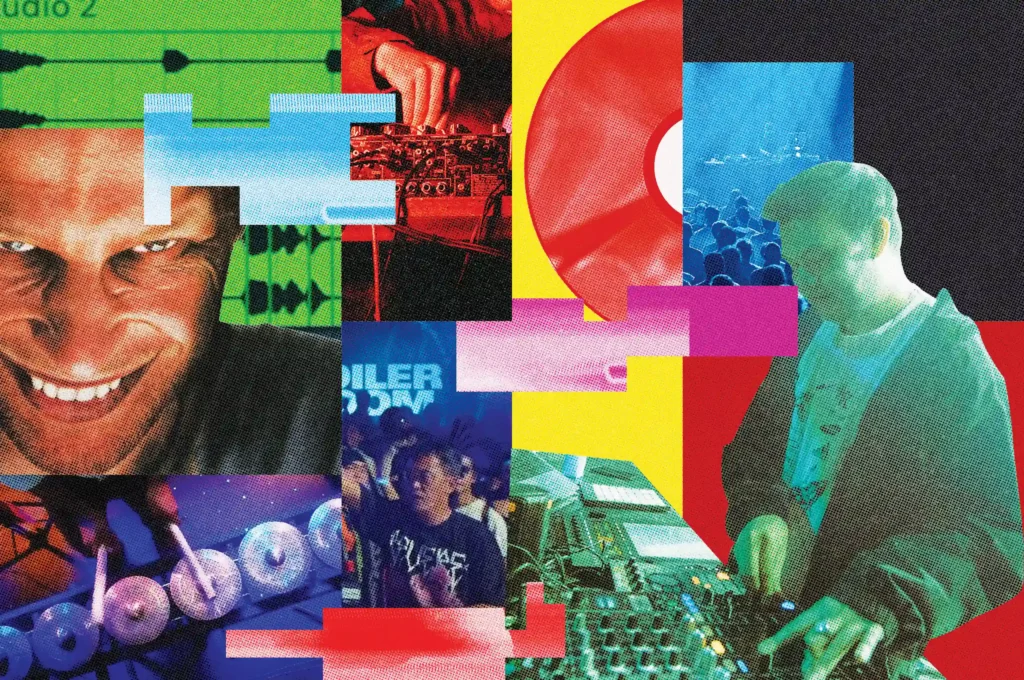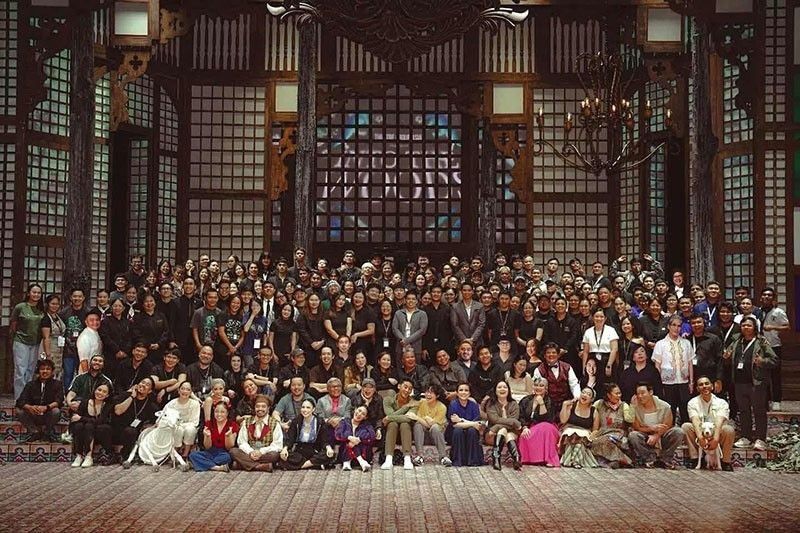RamonPang has carved out a corner of electronic music that thrives far beyond algorithm-driven playlists. As a producer and co-head of the Los Angeles-based imprint Tabula Rasa Records, Ramon Tumbucon is known for crafting tracks like “Brand Blvd” and “Webs,” resisting neat categorizations with its layers of glacial atmospheres, chopped vocal fragments, and restless breakbeats morphing into unpredictable arrangements.
His music operates between the accessible world of electronic dance music (EDM) and the disorienting sprawl of intelligent dance music (IDM). Yet, Tumbucon’s influence today is just as visible in his role as a content creator where his videos — some garnering between 150,000 to 2 million views on Instagram — helps curious listeners understand electronic music subgenres like vaporwave, jersey club, and plunderphonics, among many others.
For Tumbucon, growing up Filipino-American in the United States shaped his view of how music travels across generations. His cousin first introduced him to dance and electronic music in 2014 with artists like Skrillex and Aphex Twin— an experience that would later shape his understanding of electronic music as a living archive. His approach connects cultural memory with digital tools, framing production not only as craft but also as inheritance.
“It’s kind of like folk where the music we like and the ideas that resonate with us are passed down through generations,” Tumbucon tells Rolling Stone Philippines. “But now, because of like Ableton and FL Studio [being widely accessible], we can make ideas our own, but also sample everything that came before us.”
Tumbucon often reflects how, in Los Angeles, few Filipino-Americans meet in his specific corner of IDM. While Filipino musicians are present across the city, finding peers within his niche, despite residing in North America, remains rare. “Historically, the [electronic] music industry in Los Angeles — and all over the States — is very white,” he says. Yet, with the rise of the Bisaya dance music genre budots on TikTok, and particularly after its feature on Boiler Room in 2023, he has begun to notice how uniquely Filipino club sounds resonate with diasporic communities worldwide. The viral spread of budots, once dismissed as tacky or kitsch, has become a cultural connector across continents.
“It’s really cool that the Philippines has its own club music that’s so kitschy and entertaining [that] it can’t be touched by [the gentrifying forces of the] Western music industry.”
RamonPang
“In New York, there are a couple DJs I know [that are] starting budots parties,” he says. “I’m seeing budots parties pop up in Daly City [in California], which has a big concentration of Filipinos. I’m waiting for something like that to happen here in Los Angeles because we have a big Filipino-American community, but it’s really hard and expensive to throw parties.”
For Tumbucon, the idea that music created in provincial towns in Visayas and Mindanao now occupies a space in international clubs speaks volumes about how diasporic communities can help reframe localized cultures in the eyes of the global community. Moreover, the inclusion of budots in global institutions like Boiler Room stunned Pang’s circle of friends, many of whom never expected the genre to escape its hyper-local origins.
“It’s really cool that the Philippines has its own club music that’s so kitschy and entertaining [that] it can’t be touched by [the gentrifying forces of the] Western music industry,” Tumbucon says. What once existed as a viral punchline matured into a movement that has redefined what Filipino club music can look like abroad.
Beyond his commentary on the Filipino diaspora, Tumbucon gained traction online for making the discourse surrounding experimental music more accessible. In the digital space, where immediacy is rewarded, Tumbucon is presented with the challenge of presenting dense, often complicated compositions without stripping it of its depth. Short-form content has helped expose niche audiences to new genres, but it also risks reducing complex music with little to zero context. Tumbucon emphasizes the need to respect the art form, even when algorithm-driven platforms make that difficult.

“The bad thing [for experimental musicians] is that a lot of [their] music isn’t great [for] 30-second to one minute clips,” he says. “[Artists like] Autechre and Aphex Twin make music that is best absorbed [in its entirety]. But if you just hear the first two seconds on TikTok, it [becomes] this distorted-sounding mess, and a lot of people who make really amazing music immediately get disregarded because of that.”
For Tumbucon, there are many opportunities to move beyond Western forms of experimental music, particularly those rooted in European classical minimalism, such as the works of Michael Nyman or Gavin Bryars. This expansion can happen by honoring the sonic heritage of other cultures — whether through the use of kulintang to create polyrhythmic electronic music (as the San Francisco–based group Kulintronica does), or by blending the syncopated drum patterns of U.K. jungle with samples of the tumbi, a single-string instrument from the Punjab region of northwest India — which Missy Elliott did in her 2001 hit “Get Ur Freak On.”
“When people play that song, they’re not thinking about how experimental it is. They’re thinking about how fun it is,” he says about Elliott’s track. “By honoring [traditional] instruments in a [new] context, it brings up ideas about our colonial heritage and continuing [its] sound in a way you might not even get from Western experimental music.” Thus, for Tumbucon, the challenge in experimental music today lies in balancing artistic curiosity with the energy of a keenly listening audience, building experiences that are immersive but still celebratory.











